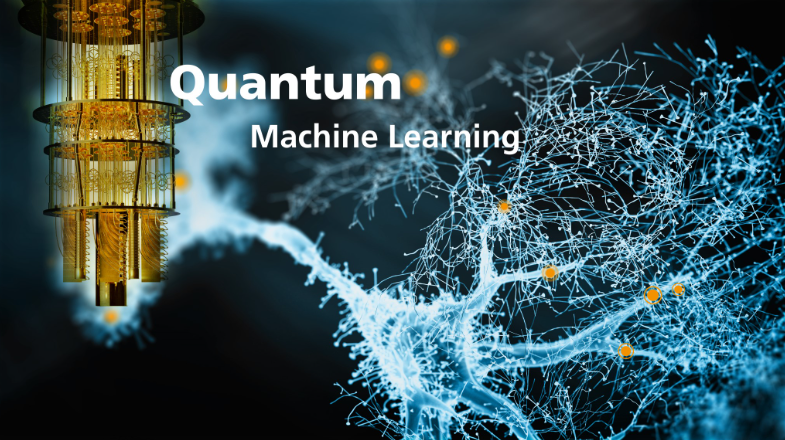Introduction: Quantum computing, a groundbreaking technology that utilizes quantum principles, is revolutionizing various sectors, from cryptography to drug discovery. But how does it manifest in tangible situations today? This article delves into which situation is a current example of a use case in quantum computing and answers some frequently asked questions surrounding the quantum computing arena.
Why Quantum Machine Learning?

Quantum computing offers unparalleled power, specifically quantum parallelism, allowing computations to happen on multiple states simultaneously. When applied to machine learning models, the implications are profound. Tasks that traditional computers might take years to perform can potentially be executed in mere seconds with quantum-enhanced algorithms.
Real-World Examples of Quantum Machine Learning
Many industries are poised to reap the benefits. Here’s a closer look:
- Drug Discovery: Quantum computing aids in the efficient analysis of molecular structures, accelerating the path to life-saving medications.
- Weather Forecasting: Enhanced predictive models could lead to more accurate forecasts, optimizing preparations for severe weather conditions.
- Material Science: Quantum computing holds potential in discovering new materials with unprecedented properties, which could revolutionize industries.
How does Quantum Computing Impact Scientific Research?

Quantum supremacy is not just a buzzword. With the ability to solve problems that are currently too complex for classical computers, researchers are on the brink of untapped territories. Quantum sensors, for instance, offer higher precision in measurements, facilitating better data collection in experiments.
Challenges and Breakthroughs
While quantum computing is transformative, challenges like quantum error correction remain. However, ongoing research promises solutions, and with every breakthrough, we move closer to fully realizing its potential.
Can Quantum Computing Improve Cybersecurity?

Quantum cryptography is a fascinating intersection. As quantum computers threaten to break traditional encryption techniques, quantum-based cryptographic solutions emerge as the unbreakable alternative, ensuring secure communications.
Quantum Computing and Environmental Benefits
Environmentally, quantum computing is a game-changer. It offers efficient algorithms that could lead to sustainable solutions and lower energy consumption in various applications.
Financial Modeling with Quantum Computing
Quantum algorithms have the potential to decipher complex financial models, leading to more efficient risk analysis, portfolio optimization, and high-frequency trading strategies. Banks and financial institutions are investing in quantum research to gain a competitive edge and predict market movements with higher accuracy.
Quantum in Telecommunications
Quantum communication utilizes principles like quantum entanglement to create unhackable communication channels. Nations and organizations are already deploying quantum-secured communication networks, ensuring a new era of secure information exchange.
Advanced Manufacturing and Quantum Computing
Precision is key in advanced manufacturing processes. Quantum sensors offer a degree of accuracy unmatched by classical sensors, ensuring that minute errors in measurements, which could lead to substantial losses, are minimized. This accuracy can optimize the supply chain, reduce waste, and ensure the production of high-quality products.
Space Exploration and Quantum Technologies
Exploring the vast expanse of space requires processing enormous amounts of data. Quantum computing could analyze this data at unparalleled speeds. NASA and other space agencies are researching quantum technologies to improve satellite communication, celestial data analysis, and even propulsion technologies.
The Healthcare Paradigm Shift with Quantum
Beyond drug discovery, quantum computing can revolutionize diagnostic methods. Imaging techniques like MRIs could become faster and more precise, leading to early detection of illnesses. Moreover, quantum data analysis could sift through vast medical databases, identifying patterns that could predict outbreaks or improve patient care.
Environmental Monitoring and Conservation
The potential environmental benefits of quantum computing extend to monitoring and conservation efforts. Quantum sensors can detect minute changes in ecosystems, providing early warnings about environmental threats. Moreover, quantum algorithms could optimize resource allocation in conservation projects, ensuring maximum impact.
Understanding Quantum Computing Concepts
- Quantum Superposition: This fundamental principle allows quantum bits (qubits) to exist in multiple states simultaneously. It’s the reason quantum computers can process vast amounts of information at once.
- Quantum Gate: Like classical logic gates, quantum gates manipulate qubit states, allowing the performance of quantum operations.
- Quantum Entanglement: A phenomenon where qubits become interconnected, leading to simultaneous computation. It’s the backbone of quantum cryptography and quantum teleportation.
- Quantum Parallelism: Allows quantum computers to evaluate multiple solutions at once, making them incredibly efficient at certain tasks.
The Quantum Future: What Lies Ahead?
As quantum computing technologies mature, the integration of quantum solutions into our daily lives will become more prevalent. With companies like IBM, Google, and startups diving deep into quantum research, breakthroughs will continually reshape industries.
However, with power comes responsibility. The rise of quantum will challenge current cybersecurity paradigms, requiring a rethinking of encryption and data protection methods. Furthermore, ethical considerations, especially in areas like AI and data analysis, will become paramount.
FAQs on Quantum Computing
How is quantum computing used in cryptography?
Quantum computers can break many current cryptographic methods. Yet, quantum cryptography offers a new paradigm of secure communication.
Explain quantum machine learning and its applications?
Quantum machine learning integrates quantum algorithms with AI models, expediting data processing and offering solutions in sectors like healthcare and meteorology.
How does quantum entanglement play a role?
Quantum entanglement is a core principle allowing qubits (quantum bits) to be interconnected. It enables faster, simultaneous computations.
What about quantum annealing and its practical applications?
Quantum annealing aids in solving optimization problems, finding global minima more efficiently than traditional methods.
Are there limitations to quantum computing technology?
Current challenges involve error correction, qubit stability, and scalability. However, advancements are being made to tackle these.
Also Read: What is a Benefit of Interference in Quantum Computing?
Conclusion
The journey into the quantum realm is just beginning. With each passing year, new applications emerge, and what was once science fiction becomes reality. As we stand on the cusp of this revolution about which situation is a current example of a use case in quantum computing, it’s essential to understand, embrace, and ethically integrate quantum advancements for the betterment of humanity.





